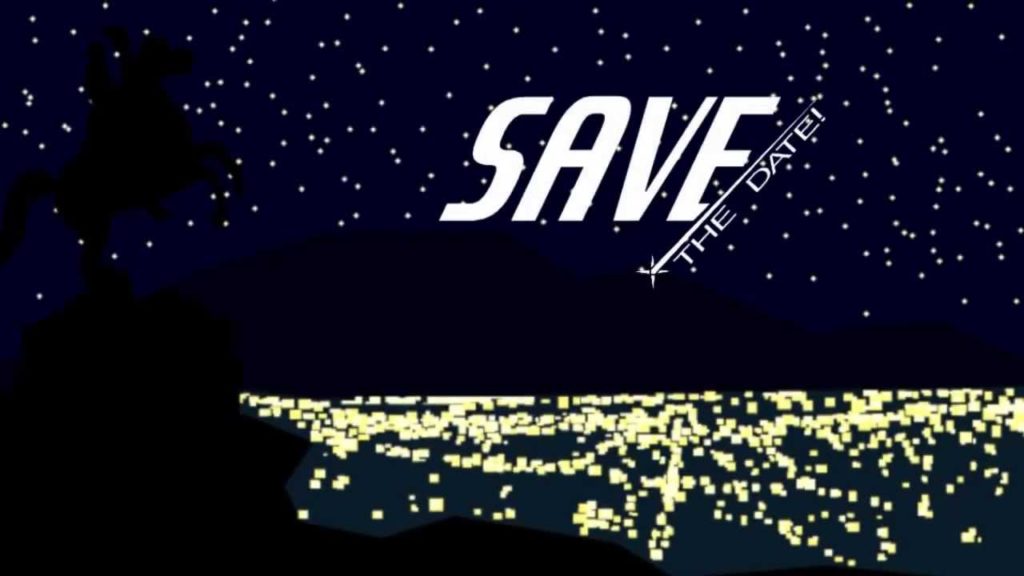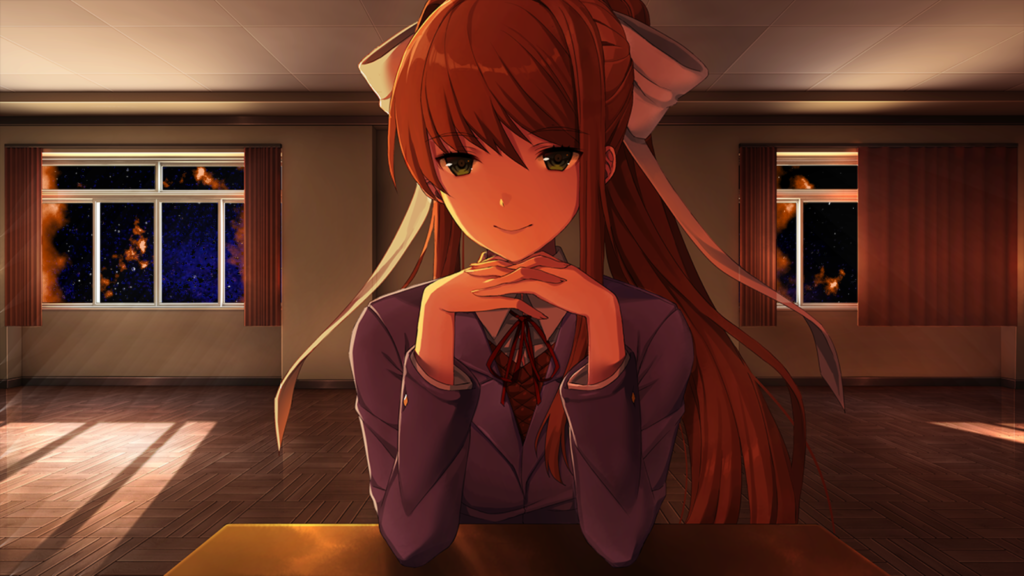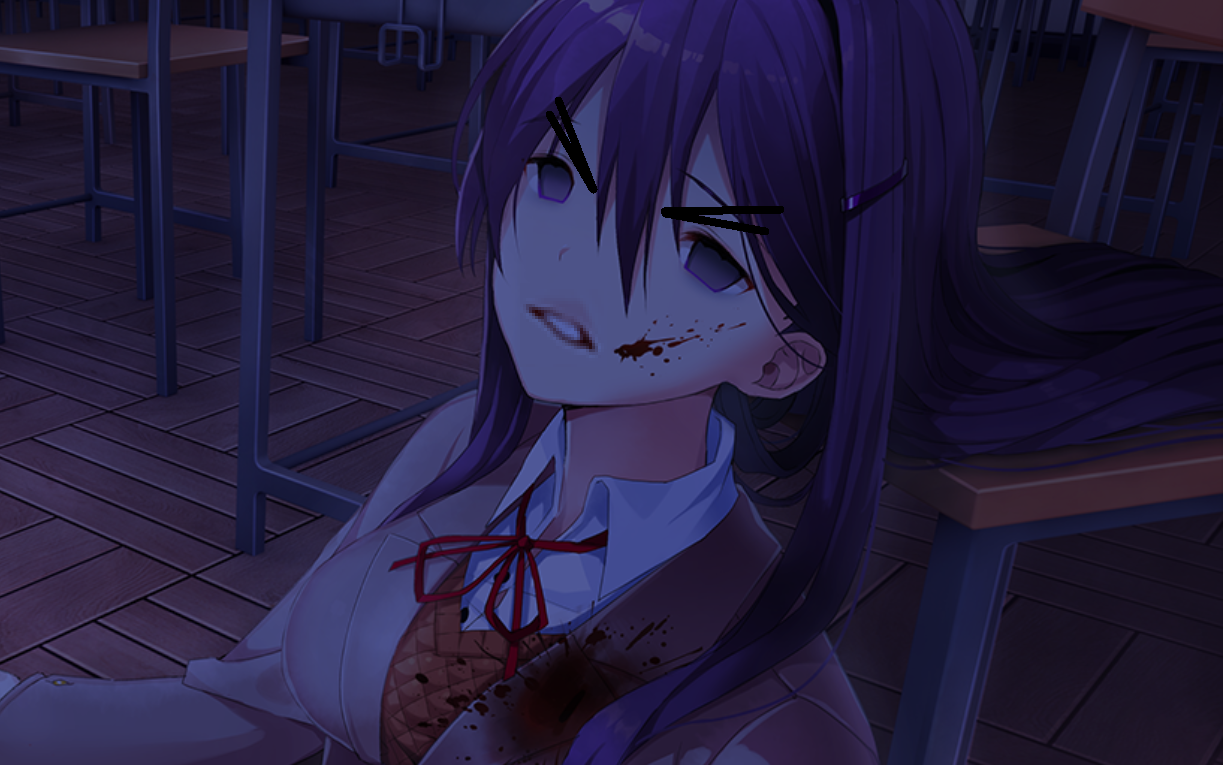My experiences with Doki Doki Literature Club and Save the Date were very different from one another, but if there was one thing in common between both of these experiences it would be that I didn’t enjoy the endings. With Doki Doki, the frustration of having to go into the game’s file and delete a character, before eventually having my save file corrupted felt somewhat removed from both the dating sim characteristics from my first run through and the horror/mystery elements comprising my second run through. And with Save the Date, I initially felt that the game had been an unnecessary time sink, as I had gone through the “best” ending of the game on my third run through, yet continued to spend another hour on the game hoping to find something better. Despite this, I would rate both games positively, and would even recommend them to my friends.

The reason for this positive rating lies in the intentions of the creators of both games. Doki Doki Literature Club and Save the Date can both be classified as dating simulation games, or games in which the player simulates building and maintaining relationships with one or more characters (According to Wikipedia). Dating sim games often “gamify” typical romantic experiences, with certain choices being “correct” or necessary to further a player’s relationship with other NPCs. Dating sims, and video games in general, are almost always replayable and often even have checkpoints, granting the player the option to retry certain paths and succeed in relationships where they may have previously struck out. I believe this is one of the core appeals of the dating sim genre: relationships are stripped down to elements basic enough to be implemented in a game, so players often are able to experiment and choose to engage with simple relationships in a stress free environment without the fear of failure.
While these games might have some positive aspects in how they can accustom players to certain romantic situations and social cues, there are significant drawbacks in how they can relay the nature of relationships in the real world. Dating sims, whether intentionally or unintentionally, portray relationships as simple interactions in which a suitor must say the “right” things during conversation in order to win over the person they are pursuing. This view often prioritizes the suitor saying what they think their opposite will appreciate over being truthful, and treats their opposite as an object to be won over rather than a person with individual or unique feelings.
Doki Doki Literature Club and Save the Date both deviate from and criticize these aspects of dating sims through how they procedurally progress, albeit in different ways. Save the Date chooses to challenge a player’s tendency both to assume they are in complete control of the outcomes in playing a dating sim and to search for the “correct” option or path a player can take. Even though the game is replayable, the creators leave the player with no option to save their date. It instead asserts that no matter what move the player makes or how much knowledge the player has, any action the player takes to save their date will put an end to their date’s life. Doki Doki Literature Club procedurally offers a more aggressive criticism, making saying the “right” things to certain characters meaningless and shattering a player’s illusion of choice in what relationships they can build. Doki Doki does provide the player with both a poetry writing screen which can be used to get “closer” to certain NPCs and a save/loading feature a player can use to replay sections so that they can theoretically get the desired relationship they want if they fail to do so on their first run. However, both of these features by the end of the game are rendered meaningless, as the save/load function is “corrupted” such that the player cannot return to earlier parts of the game and eventually only being able to talk with Monika, regardless of whichever character you actually chose to end up with via the poetry writing screen.

So while I didn’t enjoy the endings of Doki Doki Literature Club or Save the Date, I recognized that the lack of satisfaction I experienced was the entire point of the games themselves. By criticizing aspects of the dating sim, these two games attacked the very thing I (and presumably others) get the most enjoyment from when playing the dating sim genre. So must metagames similar to these two be, at a fundamental level, unenjoyable? I believe that this only would be the case if the aspect a metagame wanted to critique or subvert was central to the enjoyment of the game. Otherwise, while the game might be meta in how it comments on certain aspects of its genre, it would be a hollow commentary, as by providing the same type of enjoyment it risks falling into the same pitfalls as the games it serves to criticize.

